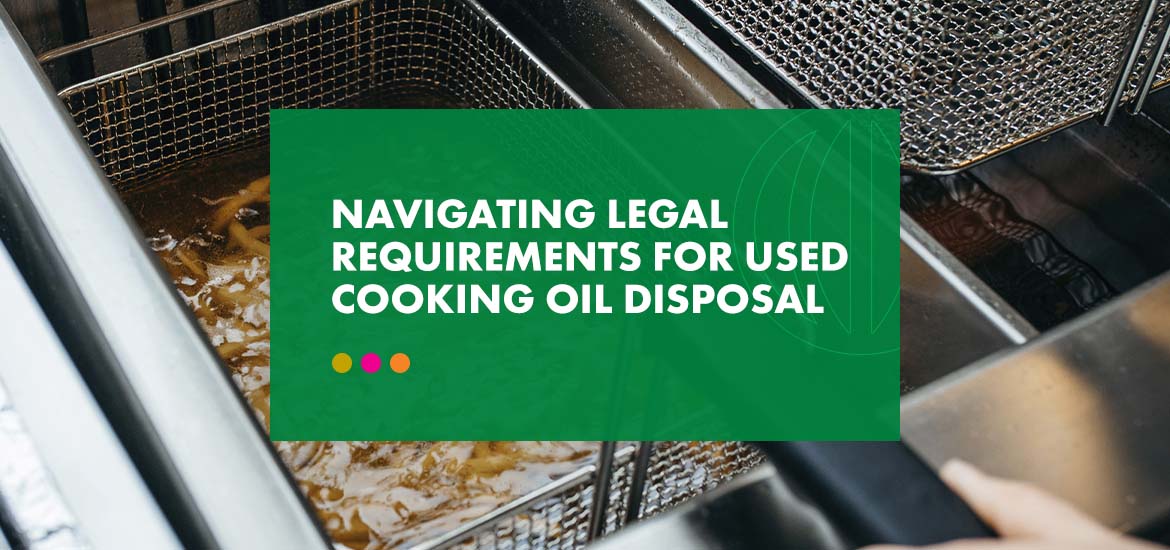Navigating Legal Requirements for Used Cooking Oil Disposal
Restaurants produce a significant amount of oil and grease on a daily basis. Legal requirements ensure restaurants dispose of their used cooking oil and grease safely and efficiently.
Understanding Used Cooking Oil Regulations for Food Service Businesses
The first step to remaining compliant and avoiding legal challenges is to know and understand the laws and regulations regarding vegetable oils and animal fats.
Identifying Key Regulations and Authorities
Each state has unique conditions for storing and disposing of used cooking oil and grease, and all states prohibit food establishments from disposing of these materials in drains, gardens or other areas where grease and oil may come into contact with wildlife. For example, the Legal Information Institute at Cornell Law School lays out specific New York codes and regulations for storing used cooking oil and yellow grease, requiring all food establishments to maintain the appropriate storage facilities and disposal methods. Cities can also dictate how and when your used cooking oil must be picked up.
Is Used Cooking Oil Hazardous Waste?
Although used cooking oil can cause environmental issues, it is not a hazardous material. However, the United States Environmental Protection Agency (EPA) states that animal fat and vegetable oil can:
- Cause wildlife to suffocate and suffer from hypothermia.
- Form toxic materials.
- Destroy habitats.
- Clog water treatment plants.
- Contaminate the natural environment, including soil and water.
The Role of Grease Traps in Legal Compliance
Grease traps intercept grease before it enters your wastewater disposal system and clogs your plumbing. You must have a grease trap to remain compliant since all restaurants and food establishments that produce a significant amount of fat, oil or grease are required to have one.
Grease Trap Preventative Maintenance
Partnering With Waste Management for Sustainable Cooking Oil Disposal
All these laws and regulations may sound daunting, especially if you’re a first-time restaurant owner, but professionals can guide you through this legal landscape and offer the services you need to achieve compliance.
Select a Qualified Waste Management Company and Ensure Compliance
A rendering company can help you navigate used cooking oil and grease laws. At Baker Commodities, we offer professional grease collection services. Our Total Grease Management Program includes collection, grease trap cleaning, drain cleaning services and preventive maintenance. Since we are familiar with the laws and regulations regarding grease and used oil disposal, we can provide expert advice on how to remain compliant.
The Recycling Journey for Used Cooking Oil
Once we remove grease and used cooking oil from your establishment, we return them to our rendering facility, where we produce biodiesel ingredients, feeding fats and protein meal.
Addressing Common Questions on Environmental Regulations and Compliance
Do you still have questions about disposing of your used cooking oil? Review our frequently asked questions:
Where Do I Store My Used Cooking Oil?
You can store your used cooking oil in specialized indoor and outdoor containment tanks.
Who Needs Professional Oil and Grease Collection Services?
You should seek professional grease collection services if your establishment produces more than 500,000 gallons of used cooking oil and grease annually.
How Often Should Used Cooking Oil Be Removed?
Each restaurant uses a different amount of oil, so we can customize our services to meet your establishment’s unique conditions.
Partner With Baker Commodities for Sustainable Oil Disposal
Baker Commodities has over 80 years of experience with grease trap maintenance and used cooking oil disposal. Contact us online to learn more about our services.



